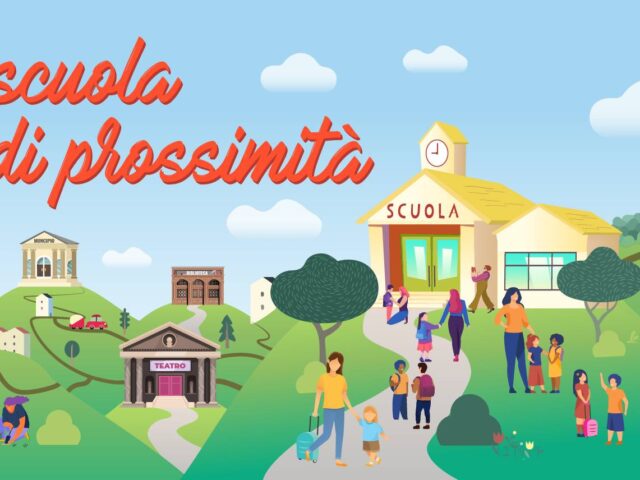Piccole Scuole: distance learning to maintain schools in remote villages
The Piccole Scuole Movement is a network of small schools created by INDIRE, the Italian National Institute for Documentation, Innovation and Educational Research. The movement aims at offering equal education opportunities in remote villages, in particular in mountain areas and islands. ICT technologies are used to connect small schools so that they can share classes for certain subjects but also to make students work on common projects. The overall objective is to support the survival of villages’ schools and fight depopulation.
ICT tools to share classes and projects
The Small School Movement was created in 2017 by 60 small schools and currently gathers 390 educational institutions, 2.284 school complexes, 986 multi-classes, 193.762 pupils, and 27.074 teachers. Many of these schools are in the 72 inner areas of the Italian territory. The Small Schools’ Manifesto proposes three pillars for the sustainability of small or isolated schools which capitalize on their strengths as: being communities of memory and quality learning, having the technologies to support social inclusion, and using the experience of multiage classes, as a resource, not a constraint.
By using ICT technologies and distance learning practices, the initiative connects schools from the network to share common classes and projects. The project is in particular targeting the small schools were the limited number of pupils obliges to create multi-ages classrooms. Videoconference tools are used for:
- Shared lessons: two or more classes from different schools are connected to each other, follow the same course and can exchange. Shared teaching is particularly interesting for schools with multi-ages classes as it helps the teacher to focus on a certain age-group at a point while another age group is remotely following a more adapted course. This is a “hybrid setting” combining at the same time digital interactions and physical ones.
- Extended learning environment: one or more classes from different schools work online on a common project and organise meetings between teachers and students. In this case, distance learning is not intended to replace physical teaching, but rather to complement traditional teaching practices and encourage interaction between teachers and students from different schools. It helps students to acquire digital skills pedagogically.
Both methods were formalized in “Handbooks of small schools”, where tools guidelines and operational guidance are available, and generally arise from joint research work between classes and INDIRE.
During the COVID-19 crisis, the Piccole Scuole Movement also supported the emergence of a solidarity network launched by INDIRE with the creation of training workshops that allowed teachers to maintain the link between small schools and the territory, to promote the home environment as an active educational laboratory and to encourage a change in the vision of the school towards a pedagogical alliance with the territories by including local communities in the life of the school.
Support from the research side
INDIRE is the National Institute for Documentation, Innovation and Educational Research and is part of the Italian Ministry of Education. It aims at encouraging the permanence of schools in geographically disadvantaged territories, maintaining an educational and cultural presence, and fighting the phenomenon of depopulation. This objective is pursued by the research group “Methodological and organisational innovation in small schools“, made up of researchers and collaborators committed to support the most isolated schools: Giuseppina Rita Jose Mangione, Giuseppina Cannella, Laura Parigi, Maeca Garzia, Stefania Chipa, Michelle Pieri, Alessandra Anichini, Rudi Bartolini, Lorenza Orlandini, Francesca De Santis. Tania Iommi and Anna Tancredi.
Through case studies and experimentations that connect teachers from small schools and researchers, INDIRE explores innovative pedagogy for small schools with multi-ages classes, which are struggling to perform effectively. INDIRE also supports teachers in the transition towards digital education and the use of ICT tools. Researchers first analysed the educational and technological context of these schools through case studies to optimize the use of distance learning practices. The network also proposes since 2018, summer schools, toolkits and webinars to help teachers and to give food for thought on the interaction between education and territory.

